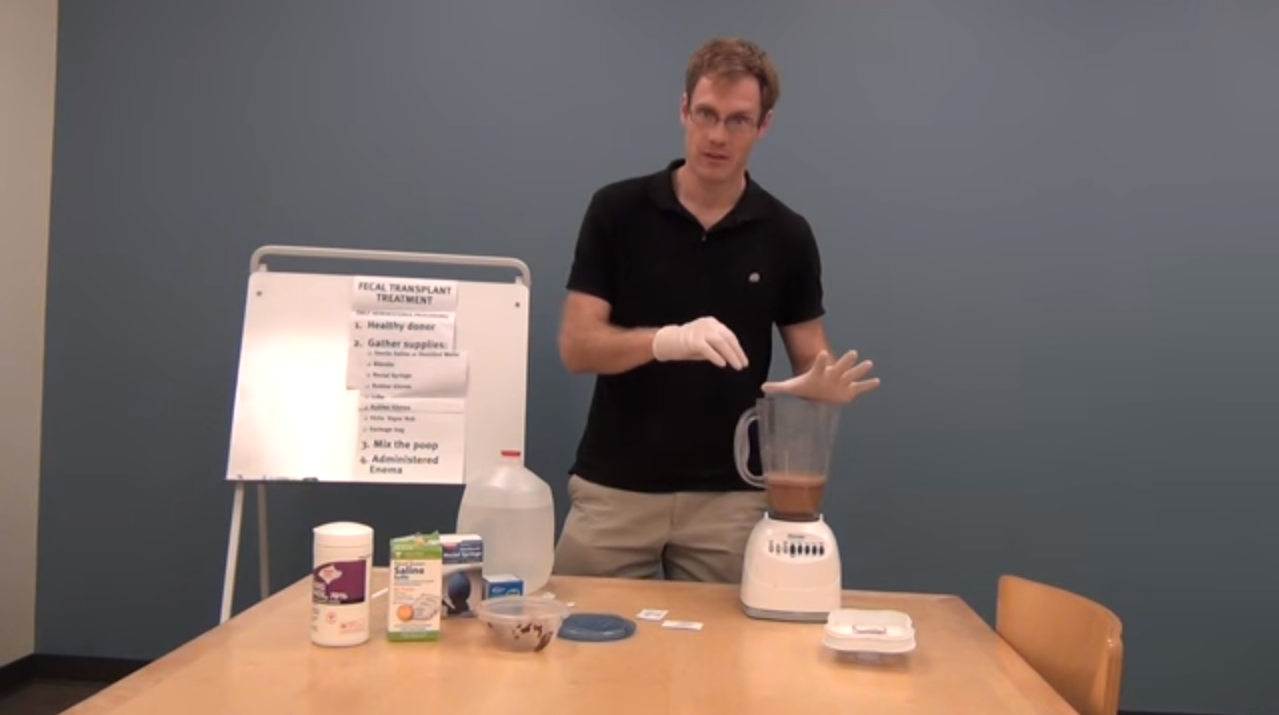DIY faecal transplants can spread diseases such as hepatitis, experts warn
YouTube tutorial videos are putting people’s health at risk

Your support helps us to tell the story
From reproductive rights to climate change to Big Tech, The Independent is on the ground when the story is developing. Whether it's investigating the financials of Elon Musk's pro-Trump PAC or producing our latest documentary, 'The A Word', which shines a light on the American women fighting for reproductive rights, we know how important it is to parse out the facts from the messaging.
At such a critical moment in US history, we need reporters on the ground. Your donation allows us to keep sending journalists to speak to both sides of the story.
The Independent is trusted by Americans across the entire political spectrum. And unlike many other quality news outlets, we choose not to lock Americans out of our reporting and analysis with paywalls. We believe quality journalism should be available to everyone, paid for by those who can afford it.
Your support makes all the difference.Experts have expressed growing concerns over the rising trend of DIY faecal transplants, as they could be putting people at risk of contracting diseases such as hepatitis.
A faecal transplant is a procedure used to help restore a person’s gut bacteria who has suffered from repeated occurrences of Clostridium difficile infection.
Clostridium difficile, otherwise known as C. difficile or C. diff, is a debilitating infection that causes diarrhoea and can consequently lead to serious bowel issues. It can usually be treated with a course of antibiotics.
Yesterday, the Infectious Diseases Society of America announced that they had updated their guidelines to recommend that patients who could not be treated with antibiotics for C. difficile-related diarrhoea should consider undergoing faecal transplants.
However, some people who are suffering from bowel problems are opting to attempt their own DIY faecal transplant procedures at home, which experts are warning could be extremely detrimental for their health.
There are a host of faecal transplant tutorial videos available for people to watch on YouTube.
One video that’s garnered more than 94,000 views claims in the title that it can help viewers cure themselves of ulcerative colitis.

Experts have explained that faecal transplants require screening processes in order to ensure the safety of the patients.
Microbes linked to multiple sclerosis, Parkinson’s and hepatitis could be transferred to transplant recipients if they’re not careful.
“Given that we know that these things that in mice, at least, can be transmitted by the microbiome, it is not cause for panic yet, but it is certainly cause for concern that the same might be true in humans,” said Rob Knight, professor at the University of California in San Diego.
When faecal transplants are carried out by health professionals, donors are screened for a variety of conditions including infectious diseases.
With that in mind, patients who have their minds set on carrying out their own faecal transplants at home are increasing their chances of coming into contact with harmful microbes.
“It is regrettably something that is increasing in frequency,” Professor Knight told The Guardian.
The dangers surrounding faecal transplants have been noted in the past. In 2015, a woman who underwent a faecal transplant to treat a C. difficile infection ended up becoming obese after having a sample transferred from her overweight daughter.
Join our commenting forum
Join thought-provoking conversations, follow other Independent readers and see their replies
Comments